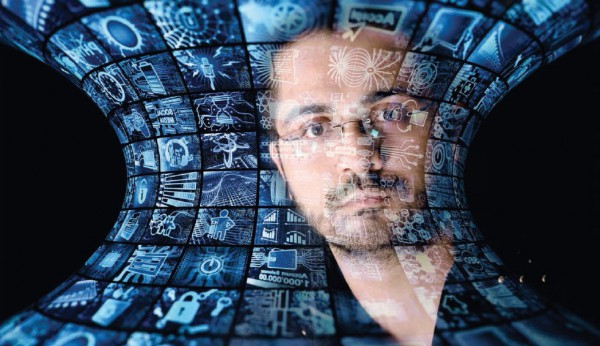Human-computer interaction
Within the 'Global Marine Technology Trends 2030' report issued by Lloyd's Register, QinetiQ and the University of Southampton, the authors predict human-computer interaction will be a key technological change in the near future…
In a report entitled ‘Global Marine Technology Trends 2030’, published by members of Lloyd’s Register, QinetiQ and the University of Southampton, the authors outline their views on the marine technologies of the future. One of the 18 key areas highlighted in the document is the emergence of human-computer interaction.
Human-computer interaction (HCI) pertains to the combination of human and technological elements, be it a touch screen or cognitively controlled robots. The most commonly understood breakthroughs in HCI in recent years have come in the form of touchscreen smartphones, tablets and predictive functions such as Apple’s Genius system. Global Marine Technology Trends 2030 (GMTT) predicts that large steps forward are just beyond the horizon.
“Many new HCI technologies are becoming familiar to us now and include gesture control, eye tracking and haptic technologies that exploit the sense of touch,” reports GMTT. “When combined, these technologies promise to drastically improve our experience of working with computers.”
Photo Credit: Global Marine Technology Trends 2030
One of the systems GMTT predicts will undergo a major change is the static computer and its mouse operated controls. The introduction of personalised computing systems connected to voice controls, retinal motions and cognitive processes will lessen the need for fixed stations – that or fixed stations will be supplemented by mobile counterparts. Such systems are already in development, one needs only to think of Google Glass to imagine how such a system might operate.
The improvements in efficiency that these technologies may bring about will have knock on effects that transcend mere operational practicality. HCI may prove to be a monetarily prudent development as well as a practical one. Much ado is made of crew related issues, from invasion of privacy, to various professional shortcomings, to high wages and short employment periods. By improving operational efficiency owners will be able to limit the amount of necessary crew members and therefore free up space, save on maligned expenditure and concentrate on hiring skilled, long-term personnel.
Profile links
Click here to become part of The Superyacht Group community, and join us in our mission to make this industry accessible to all, and prosperous for the long-term. We are offering access to the superyacht industry’s most comprehensive and longstanding archive of business-critical information, as well as a comprehensive, real-time superyacht fleet database, for just £10 per month, because we are One Industry with One Mission. Sign up here.




